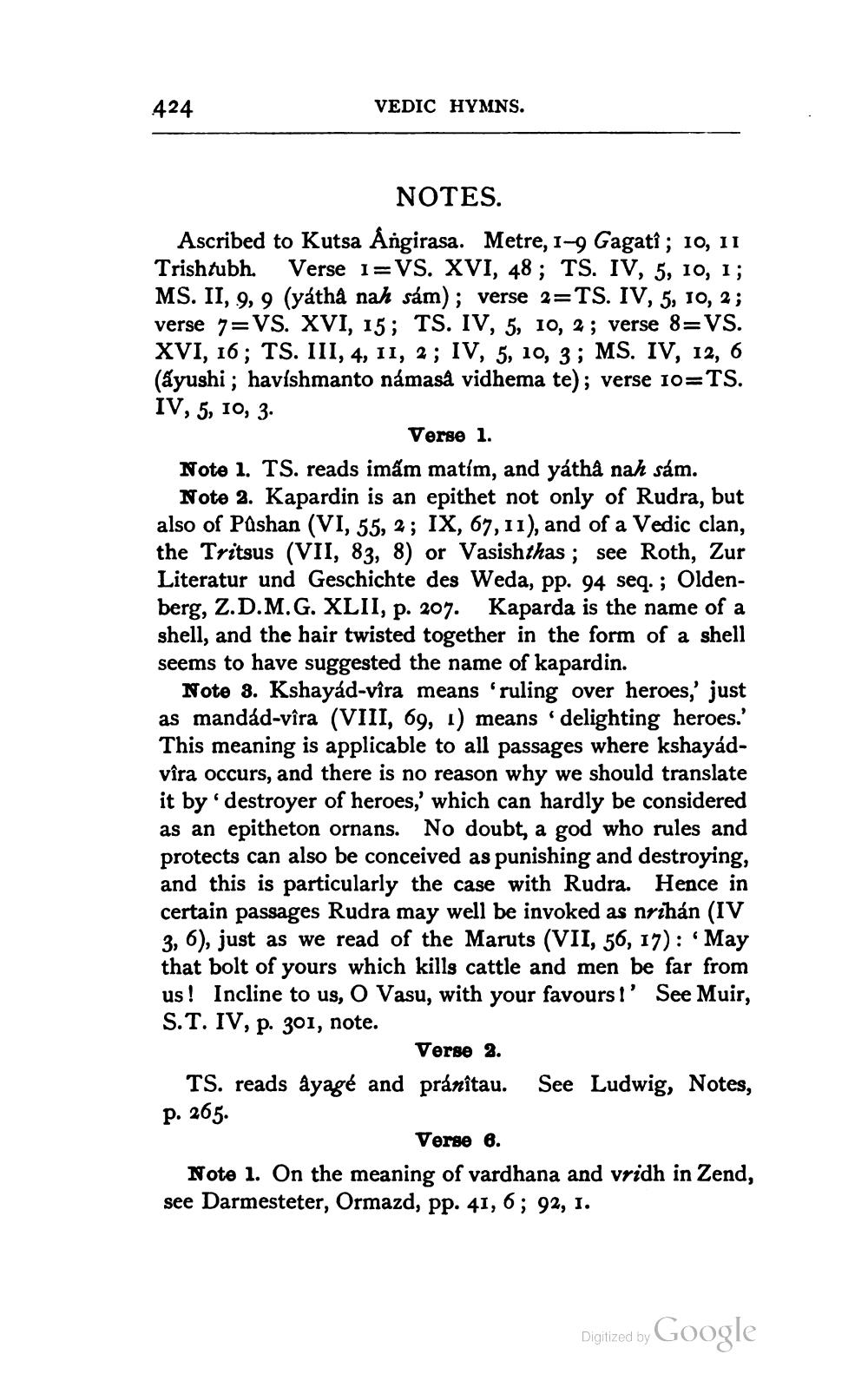________________
424
VEDIC HYMNS.
NOTES.
Ascribed to Kutsa Ångirasa. Metre, 1-9 Gagati ; 10, 11 Trishtubh. Verse 1=VS. XVI, 48; TS. IV, 5, 10, 1; MS. II, 9, 9 (yáthâ nah sám); verse 2=TS. IV, 5, 10, 2; verse 7=VS. XVI, 15; TS. IV, 5, 10, 2; verse 8=VS. XVI, 16; TS. III, 4, 11, 2; IV, 5, 10, 3; MS. IV, 12, 6 (Kyushi ; havishmanto námaså vidhema te); verse 10=TS. IV, 5, 10, 3.
Verse 1. Note 1. TS. reads imam matím, and yátha nah sám.
Note 2. Kapardin is an epithet not only of Rudra, but also of Pashan (VI, 55, 2; IX, 67,11), and of a Vedic clan, the Tritsus (VII, 83, 8) or Vasishthas; see Roth, Zur Literatur und Geschichte des Weda, pp. 94 seq. ; Oldenberg, Z.D.M.G. XLII, p. 207. Kaparda is the name of a shell, and the hair twisted together in the form of a shell seems to have suggested the name of kapardin.
Note 8. Kshayad-vîra means 'ruling over heroes,' just as mandád-vîra (VIII, 69, 1) means 'delighting heroes.' This meaning is applicable to all passages where kshayádvira occurs, and there is no reason why we should translate it by destroyer of heroes,' which can hardly be considered as an epitheton ornans. No doubt, a god who rules and protects can also be conceived as punishing and destroying, and this is particularly the case with Rudra. Hence in certain passages Rudra may well be invoked as nrihán (IV 3, 6), just as we read of the Maruts (VII, 56, 17): May that bolt of yours which kills cattle and men be far from us! Incline to us, O Vasu, with your favours !' See Muir, S.T. IV, p. 301, note.
Verse 2. TS. reads ayagé and pránîtau. See Ludwig, Notes, p. 265.
Verse 6. Note 1. On the meaning of vardhana and vridh in Zend, see Darmesteter, Ormazd, pp. 41, 6; 92, 1.
Digitized by
Digized by Google




